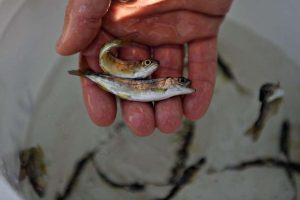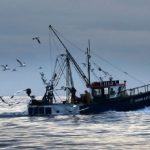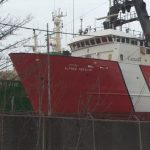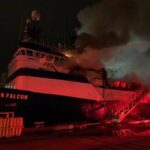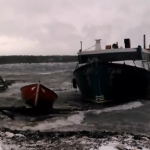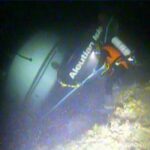Daily Archives: December 10, 2018
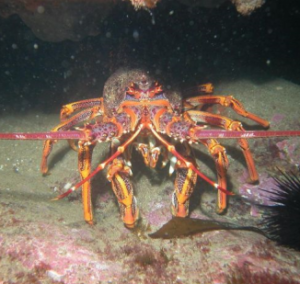
‘Tantamount to theft’: WA fishers sound off about government rock lobster intervention
Fishers have called the state government’s plans to take ownership of a significant chunk of WA’s rock lobster industry everything from the “next WA Inc” to “a great plan” set to solidify the industry’s future. After Fisheries Minister Dave Kelly formally announced the government’s “development package” on Monday, the Western Rock Lobster Council of WA was quick to sound off about their concerns with the proposal. >click to read<23:24
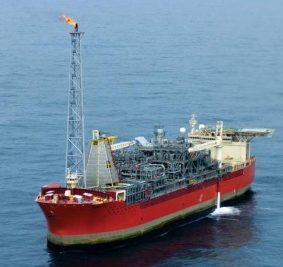
Husky spill consisted of two fluid releases, investigation reveals
Husky Energy’s investigation into the massive fuel spill at the SeaRose vessel last month has revealed there were actually two fluid releases containing a mix of oil, water and gas. While the final report has not yet concluded exactly what happened to allow the 250,000-litre spill — the province’s largest — from a failed flowline connector near the South White Rose Extension drill centre, about 350 kilometres east of St. John’s, on Nov. 16, the company provided an update Monday as it continues to delve into the incident. >click to read<21:10
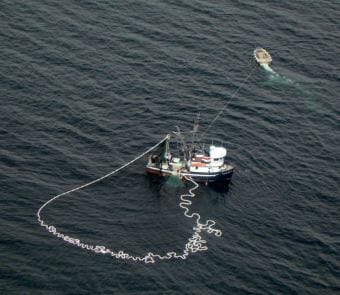
New warm ocean Blob could affect Southeast winter weather, fisheries
The Blob could be back. Or, maybe it’s the Son of Blob. Either way, the warm water phenomenon first discovered in the North Pacific five years ago is slowly reemerging in the Gulf of Alaska. Although it doesn’t appear to be as strong as the original, it could still affect weather and fisheries in Southeast Alaska. Nick Bond is the Washington state climatologist who coined the name “the Blob” when he discovered the original patch of warm water emerging in late 2013. “For the Gulf of Alaska, I would say it’s mostly, if not entirely new,” Bond said. “It might be a little bit of a different story for the Bering Sea.” >click to read<
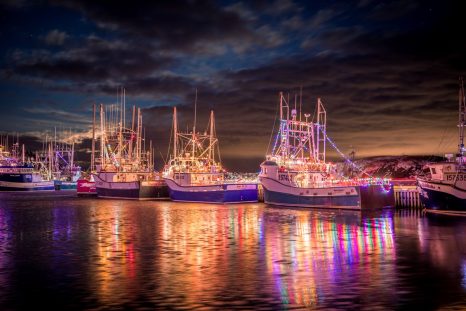
Be merry and bright with 20th annual Port de Grave boat lights
It’s become a Christmas tradition in Port de Grave: lighting up the boats in the harbour, and wading through the thousands of people who come to see them. “We figure between 30 to 40,000,” Joyce Morgan, co-chair of the Port de Grave Annual Boat Lighting, says of the number of visitors each Christmas season. This year’s lighting happened on Dec. 7, with crowds of people showing up to watch the harbour light up. >click to read<18:38
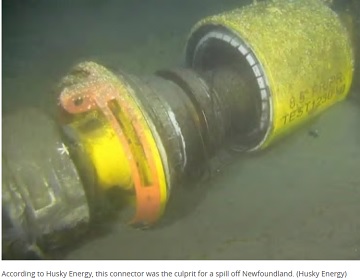
Not Good Enough – Husky ‘deeply sorry’ for oil spill last month off Newfoundland
Husky Energy says it is “deeply sorry” for back-to-back spills that sent a total of 250,000 litres of oil, water and gas into the ocean last month, and says it is making changes to prevent anything similar from happening again. The two spills occurred within an hour of each other on Nov. 16, the oil giant revealed in a statement Monday. Husky’s preliminary investigation is now in the hands of the Canada-Newfoundland and Labrador Offshore Petroleum Board (C-NLOPB), after the company submitted its preliminary report on Friday. The spill happened when a flowline connector failed near the South White Rose Extension drill centre, about 350 kilometres east of St. John’s, according to a media release. >click to read<15:58
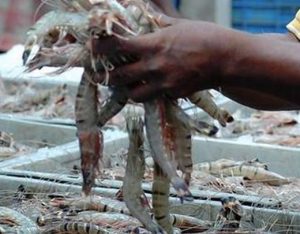
Seafood exporters worried as US plans to regulate imports
The new Seafood Import Monitoring Policy (SIMP) regulations of the US on shrimps and other marine products are giving India’s seafood sector the jitters as it sees a backlash on surging exports. Unless some effective steps have been taken by exporters, the move — which will be effective from January 1 — may impact 50 per cent of India’s shrimp production that is headed for the US. Seafood exporters have called for measures to strengthen the procedures for registration of aquaculture farms and fishing boats and linking them to certification to tackle traceability issues that affect clearance by health authorities abroad. >click to read<13:03
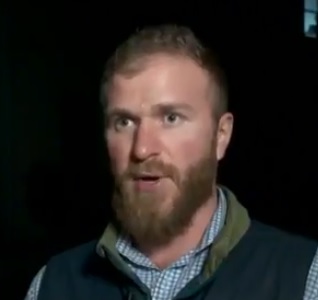
Fishermen unite to sue big oil
Almost a month has gone by since fishermen in California and Oregon filed suit against big oil in California’s Superior Court, demanding compensation for damages done to the fishing industry. The lawsuit is colloquially being called the crabbers’ suit because many of the members making up the plaintiff, The Pacific Coast Federation of Fishermen’s Associations, rely on crabbing for their livelihoods. The federation is suing the fossil fuel industry, including major companies like Chevron, ExxonMobil, BP, and Shell Oil, under the claim that it has known about the dangers of fossil fuels and climate change for decades but has deliberately hidden information from the public as well as spread misinformation campaigns. >click to read>12:35
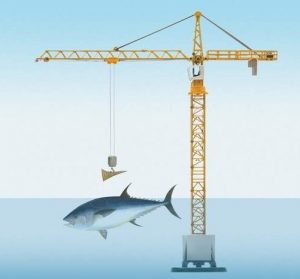
Can scientists build a blueprint for bluefin tuna?
For several years, biotech companies have been promising “clean” meat, “cell-based” meat, “cultured” meat – whatever you want to call it – as a way to enjoy the taste of chicken, pork and beef without the brutality of animal slaughter or the environmental damage of big agriculture. But what about fish? What about something as prized as buttery bluefin tuna, a delicacy that has become the forbidden fruit of the sea because of the many threats that have landed the fish on threatened and endangered species lists? Where are the Silicon Valley start-ups promising to free us from the guilt of gobbling down a finger of otoro sushi, the rich bluefin belly meat, without contributing to the decline of the fish or the decline of our own health via mercury that accumulates in the flesh of this apex predator?>click to read<07:51
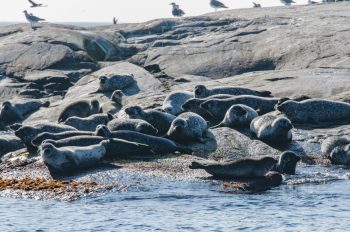
Increasing seal population will not harm largest fish stocks in the Baltic
It has long been debated whether the seal predation of fish play a major role in the fish decline in the Baltic Sea compared to human fishing. The debate escalated worldwide since conservation efforts to protect seals and fish-eating birds resulted in increased number of them. A new study taking into account human pressures on the environment, shows that the seals are not the main problem on commercial fish stocks in the open water of the Baltic Sea. “We currently have 30 000 grey seals in the Baltic Proper, but we can even have more than 100 000 seals and it will still not affect the amount of cod negatively as much as climate change, nutrient load and fisheries. (scratches head) >click to read<07:26




































